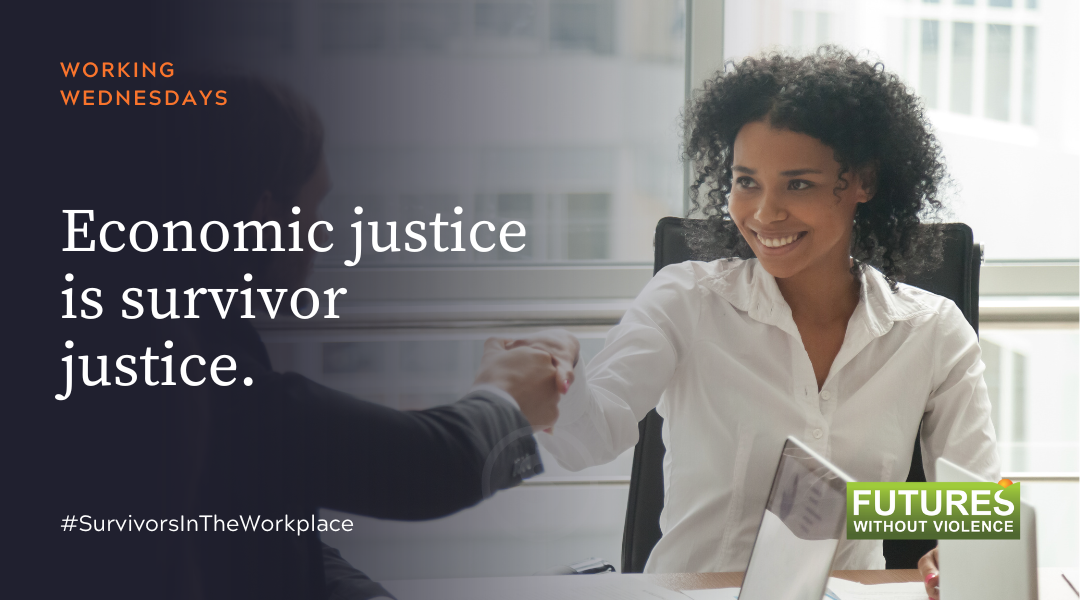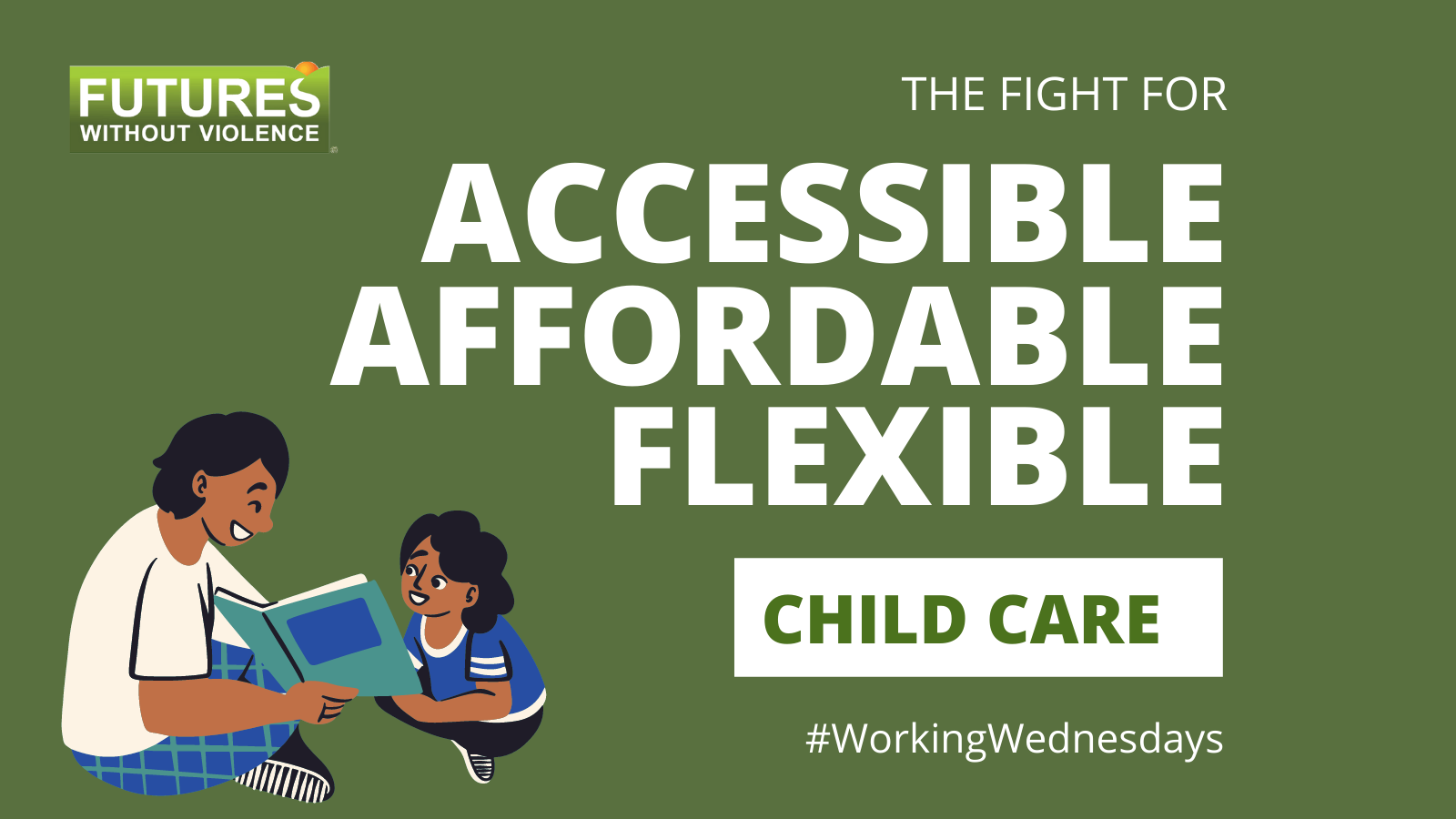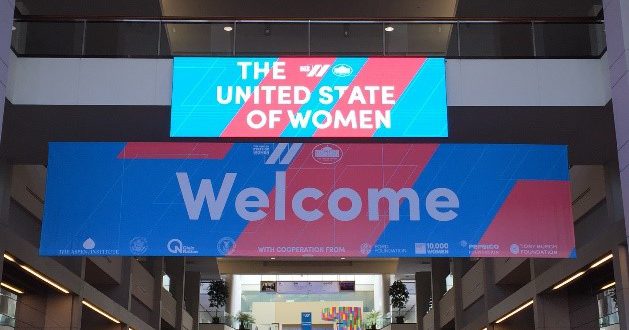September Brings Working Wednesdays
This September, we’ll be honoring and centering survivors in the workplace, and exploring why economic justice is survivor justice.
Throughout history, September has been a significant month for the labor movement in the United States. In celebration of Labor Day, a federal holiday honoring the work and contribution of American workers, we wanted to take this month to highlight some of the economic barriers faced by survivors, organizations working to create better workplaces for survivors, and our September “Working Wednesday” social media campaign centering survivors and economic justice.
This month we’ll cover four different topics, with new information and resources coming out each week on Wednesday to include:
- Child Care
- Survivor Leadership in the Workplace
- Trauma Informed Workplaces and Managers
- Sabotage for Survivors in the Workplace

At FUTURES, we work to promote policies and systems that advance both the economic empowerment and economic security of survivors. Economic insecurity is often one of the primary reasons survivors are unable to leave an abusive partner or unsafe workplace.
Survivors often face:
- Employment sabotage by abusive partners who seek to make it difficult to find, maintain, and excel at work;
- Need for workplace accommodations to facilitate their safety while at work;
- Sexual harassment and violence in the workplace at the hands of their employer, co-worker, or patrons; and
- Economic abuse and coercion from at the hands of their abusive partners or employers which can undermine their financial independence.
While these barriers remain a reality for many survivors, several worker and union-led organizations are creating positive change. A few are highlighted below:
- UNITE HERE Local 1 in Chicago successfully organized and passed a local ordinance to provide hospitality workers, who face high rates of sexual harassment and violence, with panic buttons so they can immediately access help.
- SEIU UUSWW in California advocated for safer working conditions for janitors and helped successfully pass a law requiring anti-sexual harassment training for all janitorial staff in California. FUTURES was involved with the campaign to pass sexual harassment training for janitors in California.
- Coalition of Immokalee Workers launched the Fair Food Program to ensure farm workers had humane working conditions and fair wages. FUTURES has been involved with this campaign through our Low Wage, High Risk pilot aimed at addressing the vulnerability of low-wage workers to gender-based violence in the workplace.
Interested in learning more about economic barriers faced by survivors and what workplaces can do better? Follow our Working Wednesday social media campaign and check back in with the page every Wednesday for updates! Throughout September, we will be posting about topics like the importance of child care for survivors and trauma-informed workplaces while highlighting the work of the Workplace Resource Center.
To kick the month off, please retweet this tweet and follow the #WorkingWednesdays and #SurvivorsInTheWorkplace to share our work on social media.
Head to our Economic Justice Page to learn more about what work Futures Without Violence does to advance equity and safety for survivors of justice in the workplace.
Working Wednesday, September 7th
The Fight For Child Care
This #WorkingWednesday we’re talking about why the fight for affordable, accessible and flexible child care is essential for women and families. During the pandemic, men have recovered and gained jobs while women are still down 100k jobs compared to February 2020. What’s one factor keeping women out of the workforce? Child care. Many families and #SurvivorsintheWorkforce face challenges both affording and finding quality child care. Domestic violence survivors experience these 3 unique barrier to accessing and utilizing child care:
- Economic Insecurity
- Sabotage by an Abusive Partner
- Inflexible Hours

Affordability is one of the biggest challenges for families using #childcare. Many families spend entire paychecks on child care payments. Affordability becomes even more complex for survivors of DV, especially survivors of color.
Many survivors can’t afford child care due to the economic abuse they experience. In a survey of survivors, 50% said they couldn’t leave an abusive partner because they couldn’t afford child care.
Affordability is even more pervasive for survivors of color. In a survey of survivors during the pandemic, Black and brown survivors had access to 5.76 times fewer financial resources than white survivors.
Many survivors experience child care sabotage at the hands of their abusive partner, which can prevent them from putting their children in child care and impacts their ability to find and maintain a job.
Here’s one example of how child care impacts survivors… a survivor asked the police to delay arresting her abuser because they were providing child care for the day
For more information on child care and how it impacts survivors of domestic violence, read our brief:https://www.futureswithoutviolence.org/child-care-as-a-domestic-violence-issue/





